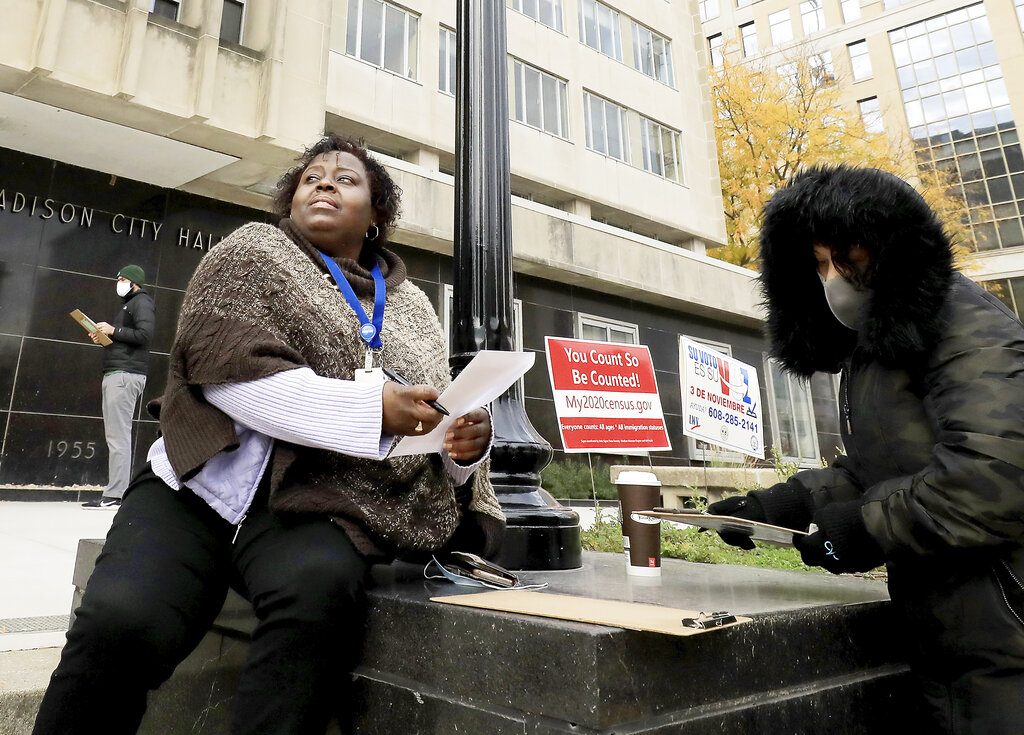US high court won’t extend Wisconsin’s absentee ballot deadline
By: Associated Press//October 26, 2020//
US high court won’t extend Wisconsin’s absentee ballot deadline
By: Associated Press//October 26, 2020//

By MARK SHERMAN
Associated Press
WASHINGTON (AP) — The U.S. Supreme Court is siding with Republicans to prevent Wisconsin from counting mailed ballots that are received after Election Day.
In a 5-3 order, the justices on Monday refused to reinstate a lower court order that called for mailed ballots to be counted if they are received up to six days after the Nov. 3 election. A federal appeals court had already put that order on hold.
The three liberal justices dissented from the order that the court issued just before the Senate started voting on Amy Coney Barrett’s Supreme Court nomination.
Chief Justice John Roberts last week joined the liberals to preserve a Pennsylvania state court order extending the absentee ballot deadline but voted the other way in the Wisconsin case, which has moved through federal courts.
“Different bodies of law and different precedents govern these two situations and require, in these particular circumstances, that we allow the modification of election rules in Pennsylvania but not Wisconsin,” Roberts wrote.
Democrats argued that the flood of absentee ballots and other challenges posed by the coronavirus pandemic makes it necessary to extend the period in which ballots can be counted. Wisconsin is one of the nation’s hot spots for COVID-19, with hospitals treating a record high number of patients with the disease.
Republicans opposed the extension, saying that voters have plenty of opportunities to cast their ballots by the close of polls on Election Day and that the rules should not be changed so close to the election. The justices often say nothing, or very little, about the reasons for their votes in these emergency cases, but on Monday, four justices wrote opinions totaling 35 pages to lay out their competing rationales.
“As the COVID pandemic rages, the Court has failed to adequately protect the Nation’s voters,” Justice Elena Kagan wrote in a dissent that noted the state allowed the six-day extension for primary voting in April and that roughly 80,000 ballots were received after the day of the primary election.
Justice Neil Gorsuch acknowledged the complications the pandemic adds to voting, but defended the court’s action.
“No one doubts that conducting a national election amid a pandemic poses serious challenges. But none of that means individual judges may improvise with their own election rules in place of those the people’s representatives have adopted,” Gorsuch wrote.
Justice Brett Kavanaugh also wrote an opinion concurring in the order.
Attorneys Doug Poland and Jeff Mandell of Stafford Rosenbaum’s Madison office, in a news release from the Fair Elections Center, noted that “the decisions by the federal court of appeals and Supreme Court to require voters to have asked the courts to order the Wisconsin Elections Commission to provide this fail-safe relief for the November election as early as May makes no sense. Voters had an email ballot delivery option at that time until the federal court of appeals took it away in late June.”
Legal News
- Wisconsin joins Feds, dozens of states to hold airlines accountable for bad behavior
- Trump ahead of Biden in new Marquette poll
- Bankruptcy court approves Milwaukee Marriott Downtown ‘business as usual’ motion
- New Crime Gun Intelligence Center to launch in Chicago
- Arrest warrant proposed for Minocqua Brewing owner who filed Lawsuit against Town of Minocqua
- Wisconsin Supreme Court justices question how much power Legislature should have
- Reinhart named the 2024 Wisconsin law firm of the year by benchmark litigation
- Milwaukee’s Common Council now has the most African Americans, women and openly LGBTQ members ever
- Office of School Safety Provides Behavioral and Threat Assessment Management Training Ahead of 25th Anniversary of Columbine Shooting
- Wisconsin Supreme Court to hear arguments in Democratic governor’s suit against GOP-led Legislature
- Lawsuit asks Wisconsin Supreme Court to strike down governor’s 400-year veto
- Wisconsin man pleads not guilty to neglect in disappearance of boy
WLJ People
- Power 30 Personal Injury Attorneys – Russell Nicolet
- Power 30 Personal Injury Attorneys – Benjamin Nicolet
- Power 30 Personal Injury Attorneys – Dustin T. Woehl
- Power 30 Personal Injury Attorneys – Katherine Metzger
- Power 30 Personal Injury Attorneys – Joseph Ryan
- Power 30 Personal Injury Attorneys – James M. Ryan
- Power 30 Personal Injury Attorneys – Dana Wachs
- Power 30 Personal Injury Attorneys – Mark L. Thomsen
- Power 30 Personal Injury Attorneys – Matthew Lein
- Power 30 Personal Injury Attorneys – Jeffrey A. Pitman
- Power 30 Personal Injury Attorneys – William Pemberton
- Power 30 Personal Injury Attorneys – Howard S. Sicula











